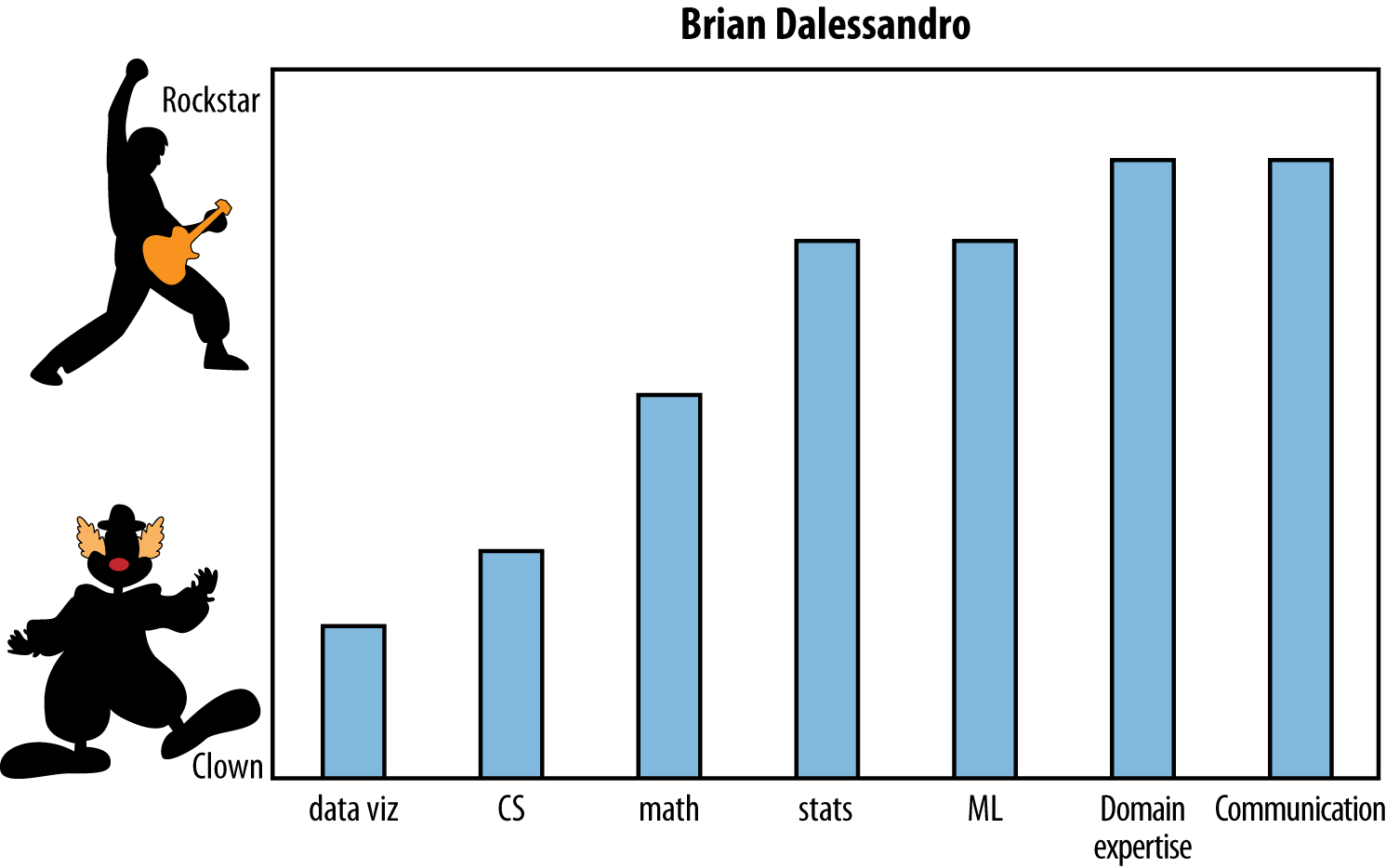Chapter 5. Logistic Regression
The contributor for this chapter is Brian Dalessandro. Brian works at Media6Degrees as a VP of data science, and he’s active in the research community. He’s also served as cochair of the KDD competition. M6D (also known as Media 6 Degrees) is a startup in New York City in the online advertising space. Figure 5-1 shows Brian’s data science profile—his y-axis is scaled from Clown to Rockstar.

Figure 5-1. Brian’s data science profile
Brian came to talk to the class about logistic regression and evaluation, but he started out with two thought experiments.
Thought Experiments
-
How would data science differ if we had a “grand unified theory of everything”? Take this to mean a symbolic explanation of how the world works. This one question raises a bunch of other questions:
-
Would we even need data science if we had such a theory?
-
Is it even theoretically possible to have such a theory? Do such theories lie only in the realm of, say, physics, where we can anticipate the exact return of a comet we see once a century?
-
What’s the critical difference between physics and data science that makes such a theory implausible?
-
Is it just accuracy? Or more generally, how much we imagine can be explained? Is it because we predict human behavior, which can be affected by our predictions, creating a feedback loop?
It might be useful to think of the sciences as ...
-
Get Doing Data Science now with the O’Reilly learning platform.
O’Reilly members experience books, live events, courses curated by job role, and more from O’Reilly and nearly 200 top publishers.

